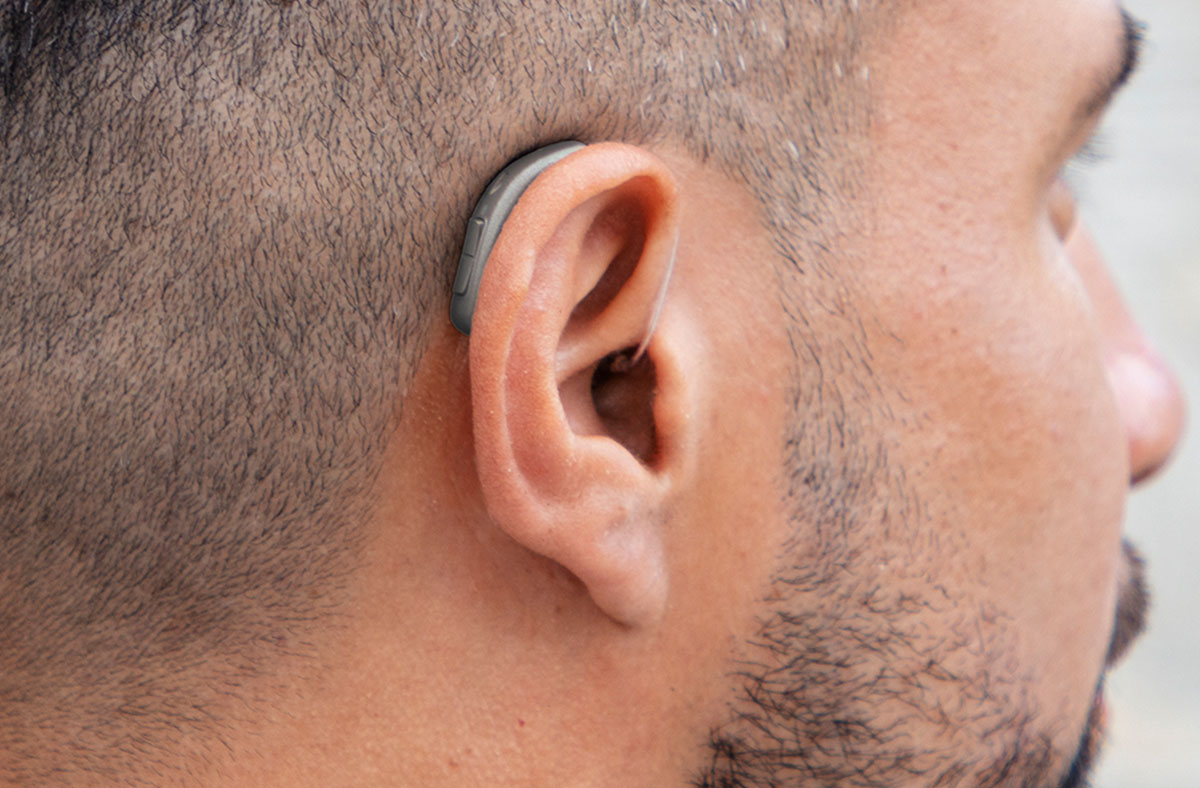
Both the ear and the brain play essential roles in hearing. Regardless of how long one has been wearing hearing aids, the brain needs time to adapt. Unfortunately, only around one-third of individuals with hearing loss use hearing aids. Value Hearing aids may be able to reduce this 33% to less than 5% by emphasising follow-up and informing clients about what to expect when using them. Here are four elements that will contribute to your success after you book a hearing test and get your hearing aids fitted:
- Participation
- Preparation
- Practice
- Patience
Participation
Without regular use, hearing aids will not function as well as they could. Customers include those who have been dragged here by their families. In most situations, these individuals are not maximising the effectiveness of their hearing aids. It requires time to adjust to wearing a hearing aid. As with new glasses, you may initially notice their presence. You will then be able to hear everything that is occurring. When the brain gets an excessive amount of new information at once, it may become overloaded. If you want your hearing aids to be effective, you must first do your part.
Preparation
Individuals can take up to four months to acclimatise to their hearing aids, even though the majority of clients do so fast. Change is inevitable, but it can only enhance your life if you accept it and learn to adapt. Hearing aids can improve hearing, but they cannot restore perfect hearing. If you get a hearing aid, you must remember that it will not suddenly cure your hearing loss. To get the most out of your hearing aids and to ensure their continued functionality, you may need to modify your daily routine. Work with your family and the audiologist to make sure your new hearing aids work as well as possible.
Practice
Exercise patience and utilise your hearing aids as instructed. Be patient when using hearing aids. Take care of your hearing aids. The more frequently you wear them, the cosier they become. If your hearing aids require batteries, you should practise removing and replacing them. During this period, family members are asked to be helpful and encouraging.
Utilize hearing aids as necessary. If you have hearing aids, you should use them continuously, preferably for at least 10 hours daily. Some audiologists pump up the volume on their patients’ hearing aids to impress them. Hearing aids are often programmed with a reduced volume so you can adjust to the silence more quickly. Getting used to hearing aids in a calm situation (such as at home) is the most effective way to prepare for wearing them in more frantic settings, such as a noisy restaurant or a crowded shopping mall.
Cognitive enhancing programmes have lately become available. Consider closing your eyes and relaxing in a park. Concentrate on a single sound, such as a bird singing, a dog barking, leaves rustling, children laughing and playing, or a bicycle’s tick-tock-tock. It is an excellent instrument for separating and recognising sounds. It will allow you to hear more clearly while simultaneously reducing background noise.
Engage in one-on-one and small-group conversations. The most recent advancements in hearing aid technology enable meaningful discussions with loved ones. Try lowering the television volume to a more “normal” level and give your ears a break. The voice volume and cadence of news and discussion shows are the same. Subtitles and captions can facilitate information processing and comprehension. Determine how loud you should read aloud.
Some individuals record their experiences with hearing aids in a daily journal that is updated daily. Keep a record of your thoughts. Use as much specificity as possible, and the night before your first follow-up session, verify that your initial findings are still accurate. After a few weeks of using hearing aids, it may be easier to interpret background noise or your voice. Do not forget to bring your notes to your first follow-up appointment following the fitting of your device so that you can discuss any necessary adjustments. The hearing aid service function is designed to assist you.
Patience
Regarding hearing aids, patience is a virtue. There is plenty for the mind and body to process, so it is typical to experience difficulty getting started. It is typical for newly fitted hearing aid users to feel fatigued. The more environmental noises there are, the harder it is for the brain to interpret them. This demands a lot of work. Try to be patient with your closest loved ones. You and your loved ones can benefit from the tips in this essay on how to listen well when you’re stressed out.
Do patients with moderate to severe hearing loss adapt to their devices?
It is critical to speak with the right people.
The deaf community is very proud and well-bonded. Most of them know and believe that implants are not a method of “healing.” I recognise that it is not everyone’s cup of tea, but I also recognise that some people appreciate it immensely. Lip reading and sign language enable them to function, and I would not be shocked if sign language is taught in schools. According to a survey on hearing aids, there are some things to think about when buying one:
- Cochlear implants cannot replace the subtleties of a natural ear. When the auditory nerve is stimulated electronically, the implant doesn’t work like a natural ear.
- Within five to ten years, a replacement cochlear implant should be implanted. Especially for growing children, they are not a “solution” for the long term.
- The possibility of surgical complications cannot be minimised (anesthesia, infection, etc.) Powered by batteries, cochlear implants, even “small” ones, are noticeable.
- The implanted receptor on the scalp must be magnetically linked to the device. If you were a child who enjoyed running and jumping, you could find it annoying. The fact that hearing aids are needed is a problem, but at least they are now more widely accepted.
Deaf individuals who engage in social interactions with others in the community may begin to identify as deaf. They do not meet the criteria for the term “handicapped.” They can only say, “We are deaf, period.” When placed in the same group as others with similar limitations, they feel stigmatized. Some deaf people I know refuse to use their cochlear implants, and I know of one who had his implant surgically removed because he felt “crippled” by it. Some reservations might lead to people not using hearing aids.
- Getting a permanent hole in the skull that prohibits contact sports and head-to-head combat is a revolutionary solution that not everyone desires.
- Cochlear implants are a form of hearing aid. Not everybody will benefit. Sadly, not all deaf individuals would benefit from a cochlear implant. As cochlear implants amplify every sound, a noisy setting will appear chaotic to a person with a cochlear implant. Because of background noise, people with cochlear implants often need a sign language interpreter even in the classroom.
- The majority of deaf adults are pleased with their deafness. If the whole public knew sign language, deaf people would have an easier time integrating.
- Most deaf individuals view cochlear implants as a treatment for their hearing loss. They do not perceive themselves as “broken.” They take pleasure in being genuine and using sign language.
- The success rates of implants vary widely. Even after a big operation, some patients’ hearing may return partially.
- Even though their cochlear implants allow them to hear well enough to get by in everyday situations, the majority of those I know with cochlear implants still use sign language in more complex environments, such as classrooms, offices, and large rooms where speakers may be too far away to be clearly understood. Auditory impairment sufferers











